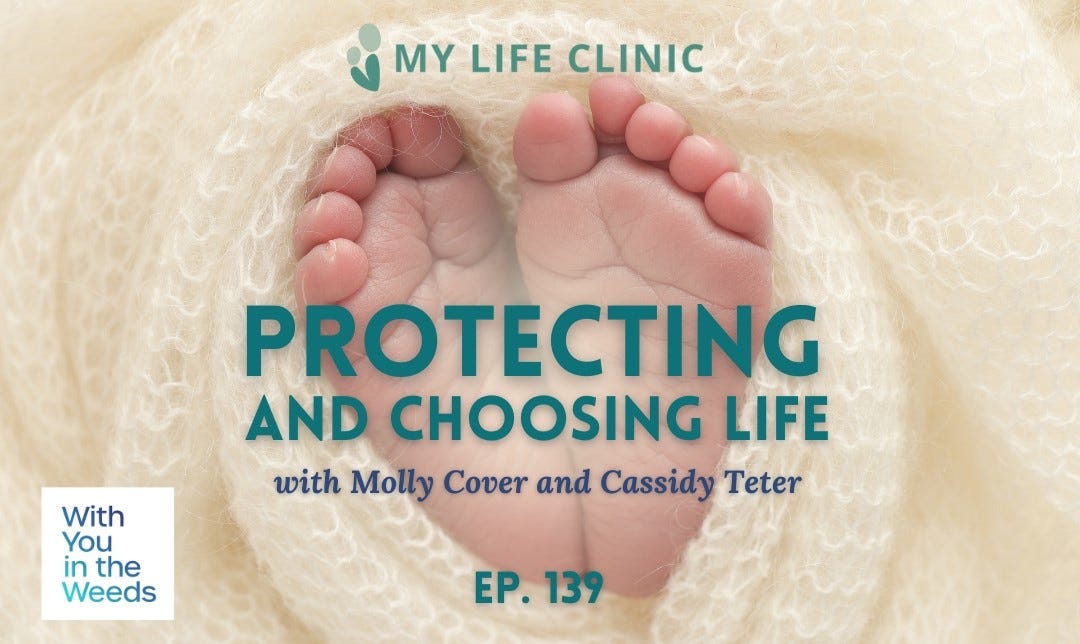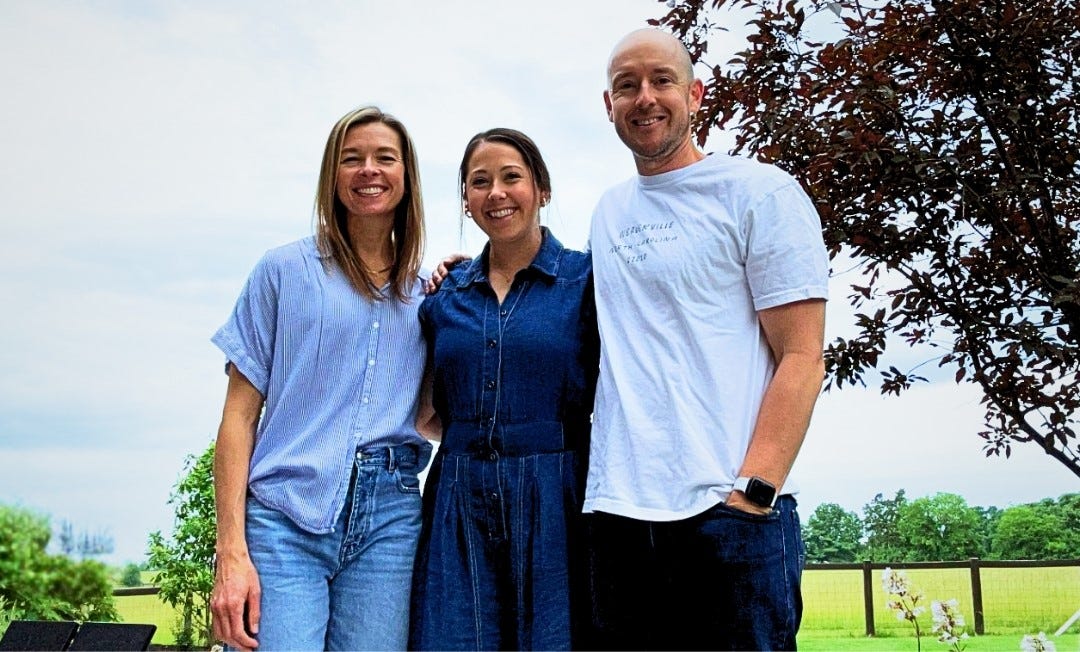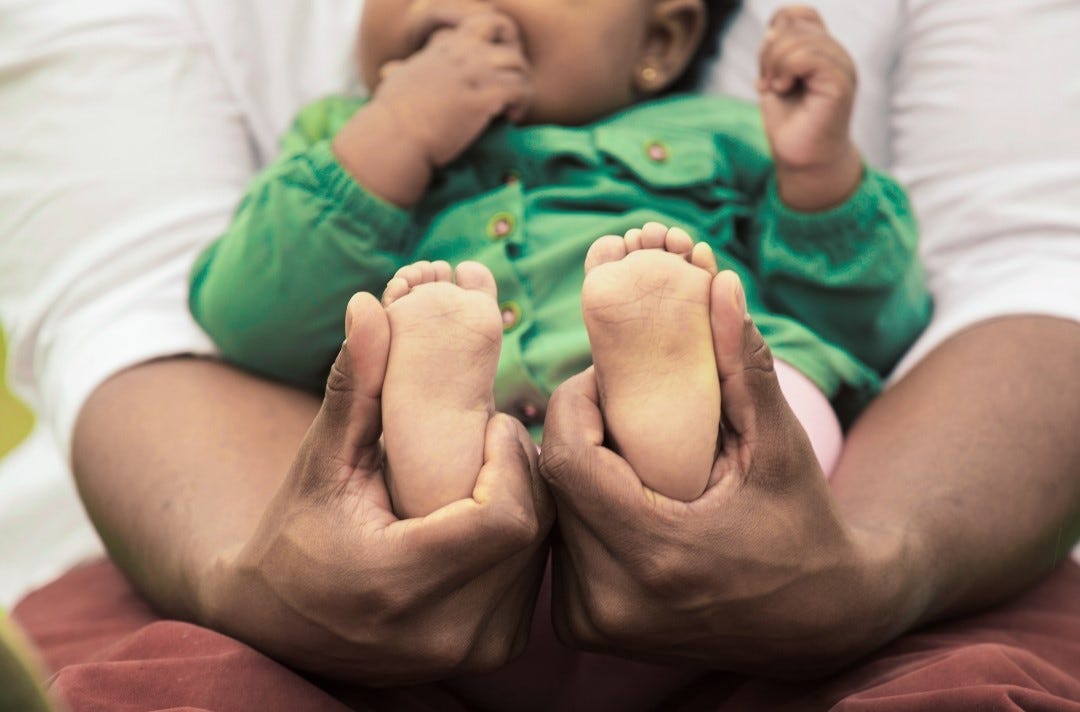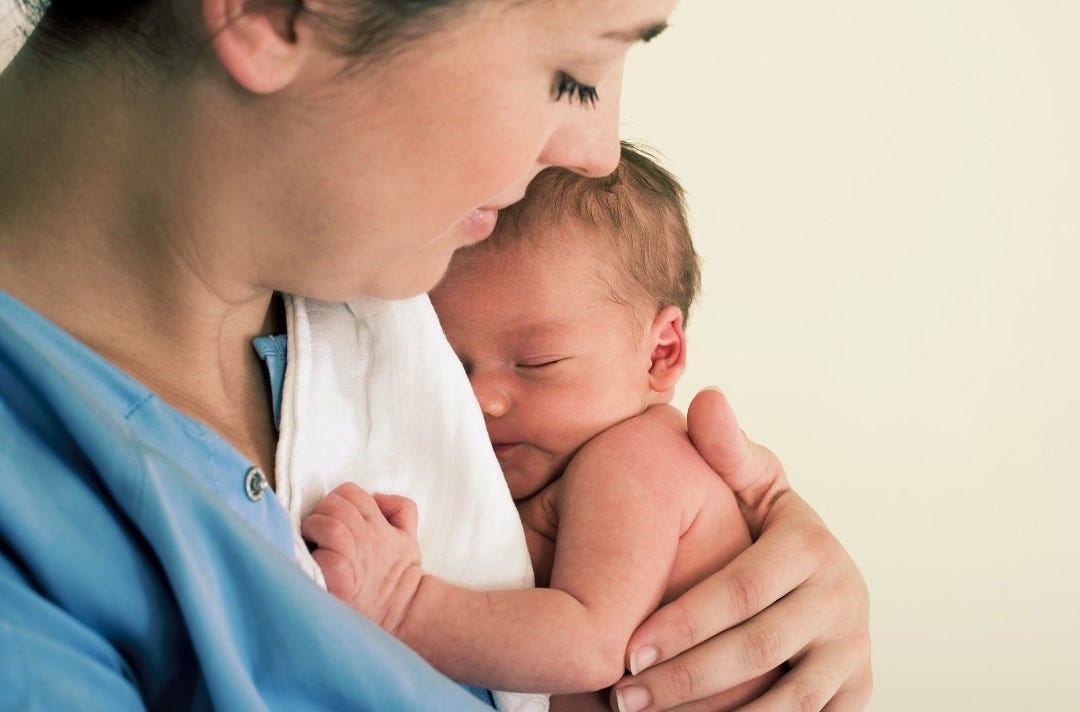Protecting and Choosing Life
Difficult decisions require compassion
What if the key to loving your neighbor lies in meeting them with grace and compassion in their most vulnerable moments, no matter their choices?
In this episode of our ongoing series Loving Your Neighbor as Yourself, Austin sits down with Cassidy Teter and Molly Cover from My Life Clinic in Columbia, Missouri, to explore a compassionate approach to supporting women facing unexpected or unsupported pregnancies.
No matter what your perception or personal experience with a pregnancy center might be, you will learn how offering evidence-based information, cost-free services like pregnancy tests, ultrasounds, STI testing, and personal counseling can provide dignity and care that women need when they’re facing a difficult decision.
Their conversation will include:
A look at the emotional, physical, and spiritual complexities around unplanned pregnancies
How to show love and compassion regardless of a woman’s past or future choices
Incredible stories of how a mother’s decision to choose life can have a lasting positive impact
This episode will encourage you to love your neighbor by meeting them with grace, dignity and support, especially in complex and distressing situations like unplanned pregnancies.
Highlights of Austin’s Conversation with Cassidy and Molly
Austin: As I talked with Cassidy and Molly to prepare for this episode, I was encouraged to hear about My Life Clinic and the holistic services they offer, including evidence-based information, cost-free medical services, counseling, and other practical support.
Today’s episode does include the topic of abortion, but we discuss this issue with grace and compassion. We understand the complexities that are present, and we want to uphold the dignity of everyone who is touched by this issue, regardless of their past.
Welcome to With You in the Weeds, Molly and Cassidy! Tell us about My Life Clinic and the services you offer.
Cassidy: Thanks for having us, Austin. As far as medical care is concerned, we offer pregnancy tests, limited ultrasounds, and STI testing and treatment. We refer patients to OB care from there.
On the resource side, we offer parenting classes, support groups, and a baby boutique filled with all the baby necessities. We also offer one-on-one counseling, including pre-natal support (when a woman is deciding what to do about her pregnancy), and post-abortion support.
Austin: Who are you seeing walk through your doors?
Cassidy: The most common clients we get are a woman who knows she’s pregnant and is considering getting an abortion, or a woman who thinks she’s pregnant, but she’s not sure.
Austin: One thing you told me is that your convictions might be controversial, but your services aren't. Can you say more about that?
Cassidy: Our whole outlook is to make a woman feel seen, heard, and supported. That goes for whatever she decides. There's no pressure, there's no influence. It's just sitting with her, hearing her story and asking her questions: Where do you feel blocked in? What do you feel hopeful for? What would it look like to parent this baby? What options do you have with adoption? What would an abortion entail?
Our goal is to make sure that a woman is entirely informed of her options and then supported and equipped to move forward.
Molly: It’s important to think about the mom and the baby, but also the process. My Life Clinic is a holistic caring experience for women. Visitors immediately receive a warm welcome. The space itself is clean and beautiful. You feel safe and secure there.
Sometimes when people hear the phrase ‘free clinic’ they assume it’s going to be basic. They’ll give you what you need and get you out the door. And our clinic is the opposite. We treat women with dignity in a situation where they may not feel dignified, and make women feel cared for, important, seen, and valued.
Cassidy: We’re a faith-based organization, but we don’t throw the Gospel at a woman when she walks in. We try to emulate Jesus in the things that we do. Jesus gives us his best all the time. So we want to give women our best. We accept donations, but they need to be new or hardly used items. We want the women who come to the clinic to have the best things for their kids and families.
Austin: How did each of you come to be involved at My Life Clinic?
Molly: I've known about My Life Clinic for years. But last year I started as the marketing director at The Crossing and started chatting with a friend, Jesse, who is the marketing director of My Life Clinic. She asked me if I'd be interested in serving on the board. So I met Cassidy - and if you meet Cassidy, it's very hard to say no to anything she asks you to do! Last September, I joined the board. It’s a privilege to serve with people from a number of different churches and faith backgrounds that are gathering around this common cause.
Cassidy: I'm currently the executive director. I’ve been in that role for two years, but I've been with the organization for quite a while. I started volunteering in 2018, and then in 2020 came on staff as a sonographer. I got my degree in ultrasound, specifically to work in a pregnancy center. I grew up watching my mom work in a pregnancy center in Kansas City, and I knew from a young age that that's what the Lord was calling me to do.
Austin: Can you explain some of the terms you use to talk about the women who come to the clinic?
Cassidy: We do understand that every situation is different, and we don’t want to generalize too much. But these terms help us to understand each mindset:
When someone is ‘life-minded’, they want to have the baby, and they need help in order to do that.
When someone is ‘abortion-vulnerable’, they aren’t sure what they’re going to do. Their circumstances make them more vulnerable to choosing abortion.
When someone is ‘abortion-minded’, they’ve already decided that’s the route they’re going to take.
Austin: How do you respond to someone who is abortion-minded?
Cassidy: We respond the way we do to anyone – with information and walking them through the process. Many women don’t know what abortion entails. We explain that to them. Sometimes we have women who have already taken an abortion pill, but no one told them what the impact of that would be.
Molly: We stay with women over the long haul. We’re there from the day you find out you’re pregnant, if that happens at our clinic. But even after we refer you to a physician, we’re there for parenting support. We provide resources for moms and for the fathers who want to be involved.
In contrast, most abortion clinics provide a one-day service. Then you’re done. And while that may seem nice on the surface, now that people are more trauma-informed, they understand that very few things in our lives are one-and-done. My Life Clinic is there for as long as someone needs us.
Austin: What would you say to someone who goes to church and knows in an abstract sense what the Bible’s view on life is, but maybe they’re unaware of the realities of living with decisions you regret. Or how feeling afraid or alone might impact your mindset.
Cassidy: I think we find two categories of churches. Many churches feel really strongly about it. They teach the perspective that abortion is wrong and choosing life is good, but they may lack some grace and nuance around the conversation.
Then there are churches that are very aware there are people with different perspectives on abortion. They may take a quieter approach to it – but the reality is they may not talk about it at all. And women are afraid to bring up the topic because no one else is talking about it.
We always encourage churches to talk from a perspective of grace. “We believe in the value of life. We believe that God doesn't make mistakes when he creates life. And we also know that there are sticky situations. If you feel like you are in that situation, then come talk to the church and we'd love to help you. We'd love to walk alongside you to encourage you to move forward.”
Austin: Any typical questions or pushback or apprehensions you get from people about My Life Clinic?
Cassidy: I'd say the biggest one is that people don't want to get involved because it feels political. Sometimes people’s convictions do line up with one political side or the other. But our services have nothing to do with politics. The reality of sitting in front of a woman and loving her well and walking forward with her for years is not political.
When we make our clinic about politics, then we lose the care and time spent with women. And these women also feel like a political pawns, and that makes me really sad since I know their faces and their names.
Women of either political party may need post-abortion counseling. Maybe they need information on what to do and what the options are before, during, and after, rather than just a one-day process. We want the abortion-minded woman walking through our doors. Because she's the one that typically needs the most support and love and grace.
Austin: That sounds like truly loving our neighbors as ourselves. What about impact? Can you share some of the ways that the clinic has impacted people’s lives?
Cassidy: In 2024, 87% of our abortion-minded clients changed their mind after having an ultrasound. Ultrasound is a beautiful way for us to see into the womb, which is really cool, science-wise. A lot of times women walk in disassociated. They’re thinking about their situation, not about their baby. An ultrasound helps a woman to start associating with her baby as her own.
A lot of times women walk in disassociated. They’re thinking about their situation, not about their baby. An ultrasound helps a woman to start associating with her baby as her own.
On the resource side, we've got women that come in for resource appointments. We had a woman come in a few months ago who was experiencing postpartum depression and started weekly counseling to help with that. We connected her with a doctor to get her medication. We packed her car full of the baby supplies she needs. She started attending a parenting class. Her whole countenance has changed – she’s like a different person.
Austin: Molly, is there anything else you want to share about the ministry?
Molly: If you live in Columbia or mid-Missouri, visit the My Life Clinic website and do some reading and research. Whether or not you want to support the clinic in prayer, financially, or as a volunteer, I think it's really important to educate yourself.
Most likely you will encounter somebody at some point in your life that has an unplanned or unsupported pregnancy. Because abortion has been so politicized, you might not feel comfortable speaking up about it. But it’s possible to be vocal in a compassionate way, not a political way.
Cassidy: We all have different gifts from the Lord. And he uses those gifts in different ways. Ask God how he wants you to step forward into this ministry. The basis of everything we do is having people pray for us and join us in prayer. We have seen God intervene in miraculous ways.
If you support us financially, donations are split pretty evenly between programs and operations. The programs are all the services that we offer. The operations side is the staffing – by funding us, you ensure that there’s someone to pick up the phone or sit down with a woman when she needs help.
Jesus calls us to be generous with our time, our treasures, and our talents. And one piece of this is thinking about how we can be strategic in loving our neighbors. Supporting us is one way you can have a very significant impact for God’s kingdom.
Austin: Thank you to Cassidy and Molly for joining me today! As I was talking with them, Psalm 147:3 came to my mind. It says, “The Lord heals the brokenhearted and binds up their wounds.” As you think about protecting and choosing life, consider how you might live out that reality in a woman’s life when she needs it most.
Recommended Resources:
My Life Clinic - Learn how to get involved, attend events, become a supporter





